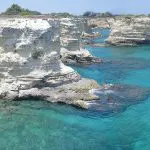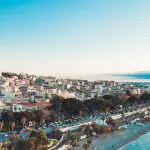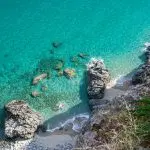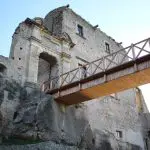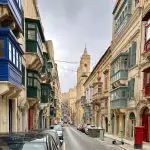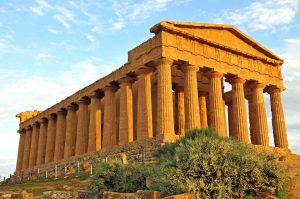
You’ve probably seen the term “Magna Graecia” on travel sites or in guidebooks, but what does it really mean? Simply, Magna Graecia was the name given to the coastal areas of Southern Italy colonized by Greek settlers as far back as 8th century B.C. Italy was Greece’s “America”. They headed west to seek new lands and new opportunities and given Southern Italy’s close proximity, climate and access to the sea, it was the ideal place to settle.
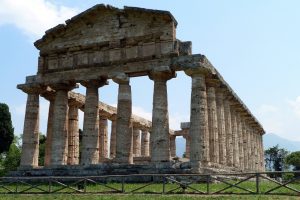
Cities were founded and magnificent temples were built. In fact, some of these temples can still be seen throughout Southern Italy in places like Paestum (Campania) and Agrigento (Sicily).
You can also find traces of their traditions and dialects. As you can imagine, the Greeks played a huge role in the history of Southern Italy and is probably why Ancient Greek is still taught in Italian schools, much to he dismay of students who have to study it.
Cumae (740 BCE), today known as Cuma, in the Province of Napoli is the earliest known colony and it was here that the Latin alphabet was born. More colonies were founded, some of which became rich and powerful cities: Neapolis (Naples, Campania), Syracuse (Siracusa, Sicily), Acragas (Agrigento, Sicily) and Sybaris (Sibari, Calabria).
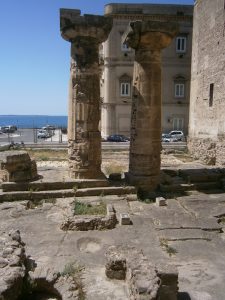
A few lesser-known places that still have traces of Magna Graecia in Southern Italy include:
Tarentum (Taranto, Puglia) with its well-preserved columns of a Greek temple.
Rhegium (Reggio Calabria) is home to the National Archaeological Museum of Magna Graecia and the famous Bronzes of Riace, considered to be the most important Greek statues in the world.
Croton (Crotone, Calabria) where one column remains of a temple dedicated to the goddess of Hera built in 6th century BC. (at Capo Colonna)
Heraclea (Policoro, Basilicata) was the last known colony to be founded in 430 BC. The ruins can be found in the present day town of Policoro in the Province of Matera.
But, as the say, “all good things must come to an end” and after continuing conflicts and battles, the surviving cities of Magna Graecia were eventually taken under control by the Romans.
Image Credit: Dennis Jarver, Dave & Margie Hill / Kleerup, Lanzate



